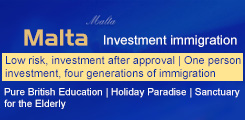"Thailand Environmental Impact Assessment" or "Thailand Environmental Impact Assessment" (English: Environmental Impact Assessment in Thailand, abbreviated as EIA) is a system to control environmental impacts for the implementation of environmentally sustainable development, prevention of planning and implementation of real estate construction projects Afterwards, it will have a negative impact on the environment, promote the coordinated development of economy, society and the environment, and formulate plans to reduce pollution caused by project development and maintain human health and ecological balance. Analyze the possible impact on the environment after the project is completed and put into production, and propose pollution prevention and control countermeasures and measures.
Like the five certificates in China's real estate development, it plays an important role in the development of real estate projects in Thailand. Not only is it to study and evaluate whether the development of the enterprise has a positive or negative impact on the environment, but also whether the buildings to be constructed on the market can be approved for construction. The EIA report directly affects the development and development of real estate projects.
Generally speaking, if the project party does not obtain an EIA in the real estate market, it cannot obtain a construction permit and cannot start construction. No matter how large the project is, as long as the EIA is involved, it will have to go through a long approval process.
According to Thai government regulations: For large-scale real estate development projects that have a significant impact on the environment, real estate developers must submit an EIA environmental impact assessment report to the Office of Natural Resources and Environmental Policy Planning (ONEP) in Thailand, and then the Thai Cabinet and licensing agencies make recommendations on this report Until approved. The environmental impact assessment report must be prepared and submitted by a consulting company officially registered in Thailand ONEP.
During this period, the report preparation process requires at least two public participation. The project party submits relevant information to the National Natural Resources and Environmental Policy Planning Office (ONEP), and ONEP reviews the EIA report, and submits its preliminary opinions to the Expert Review Committee (ERC) appointed by the National Environment Bureau (NEB) within 30 days.
The total number of apartment units reaches more than 80, or covers an area of more than 4,000 square meters.
The housing project occupies a total of more than 500 parcels, or 100 rai of land.
According to Article 46 of the National Environmental Protection Law of Thailand: The above-mentioned housing construction must pass the Thai environmental assessment standards, and the developer must follow the provisions of the EIA to develop the project. The EIA report must be attached to the project approval document, such as a building certificate. If the developer does not operate as required and directly starts construction, it will be suspended and punished by relevant departments.
Thailand’s EIA is very important when buying an apartment because of the Thai law! If the real estate project cannot pass the EIA, then the developer will not be able to obtain the building permit; or if the project starts construction ahead of schedule and fails the EIA review in the end, the project will also be stopped immediately.
Generally, all documents are submitted for review at least 6 months before the start of the project, and some projects may be submitted for 1-2 years before being passed, which is very important. However, Thailand has been reviewing projects for too long, and while projects developed in the market are basically waiting for EIA, projects can also be sold in advance. The premise also requires developers to have 100% confidence in obtaining EIA. At present, Thailand's EIA assessment process is extremely strict. Whether it can pass the EIA environmental assessment as soon as possible is a major test of the strength of real estate developers in Thailand.



























 Cyprus
Cyprus Turkey
Turkey Saint Kitts and Nevis
Saint Kitts and Nevis Greece
Greece
